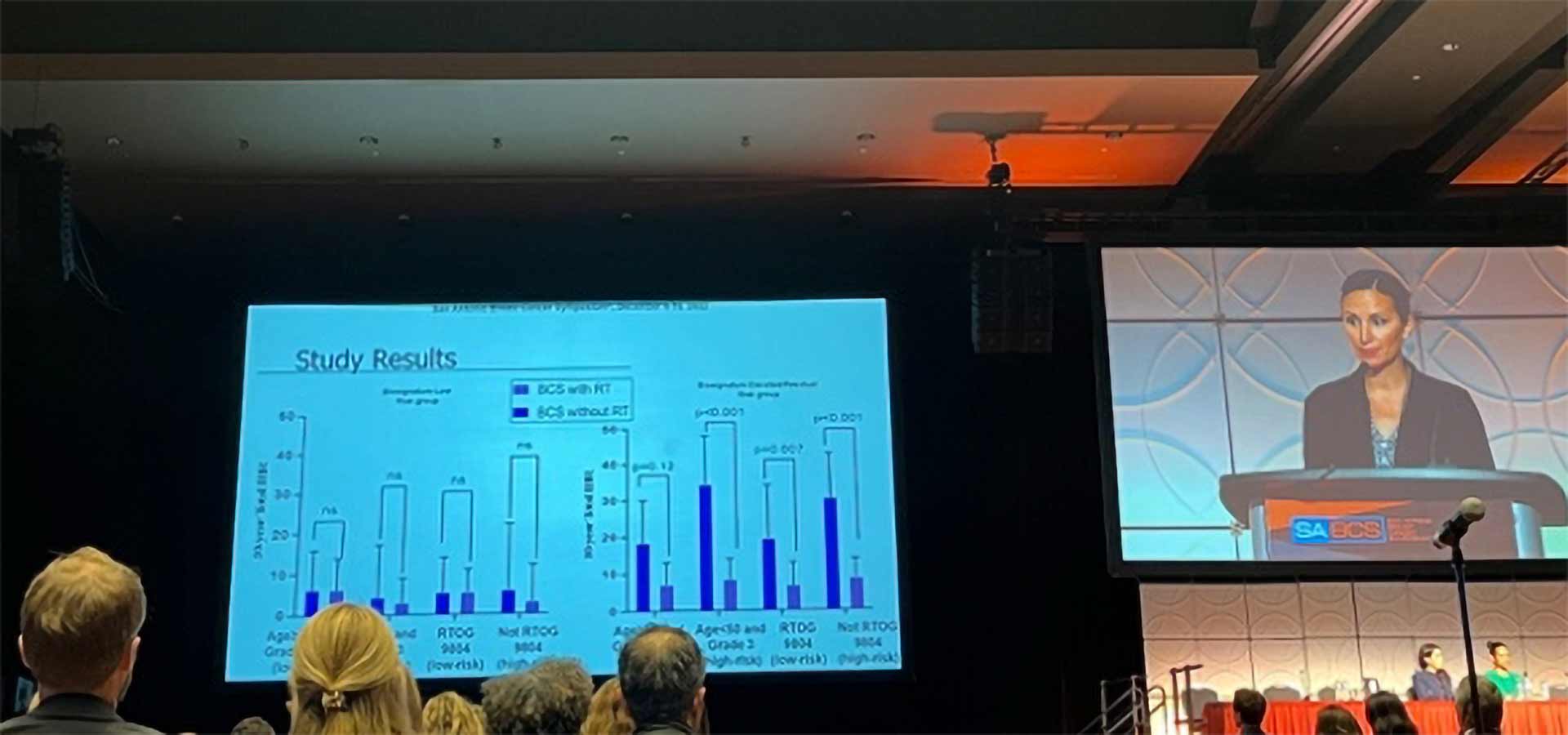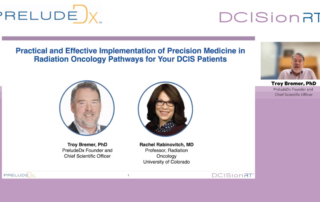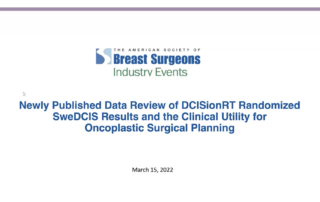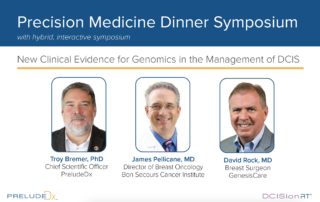Dr. Jennifer Plitcha, Duke University, discusses PreludeDx’s 7-gene predictive biosignature in Spotlight Session at 2022 San Antonio Breast Cancer Symposium.
Dr. Plitcha concluded her discussion by saying, ‘So, in your practices today, clinical pathologic factors may not be adequate for assessing radiation benefit. And the 7-gene biosignature may provide superior prediction for 10-year risk and radiation benefit than standard risk models.’
[…]






